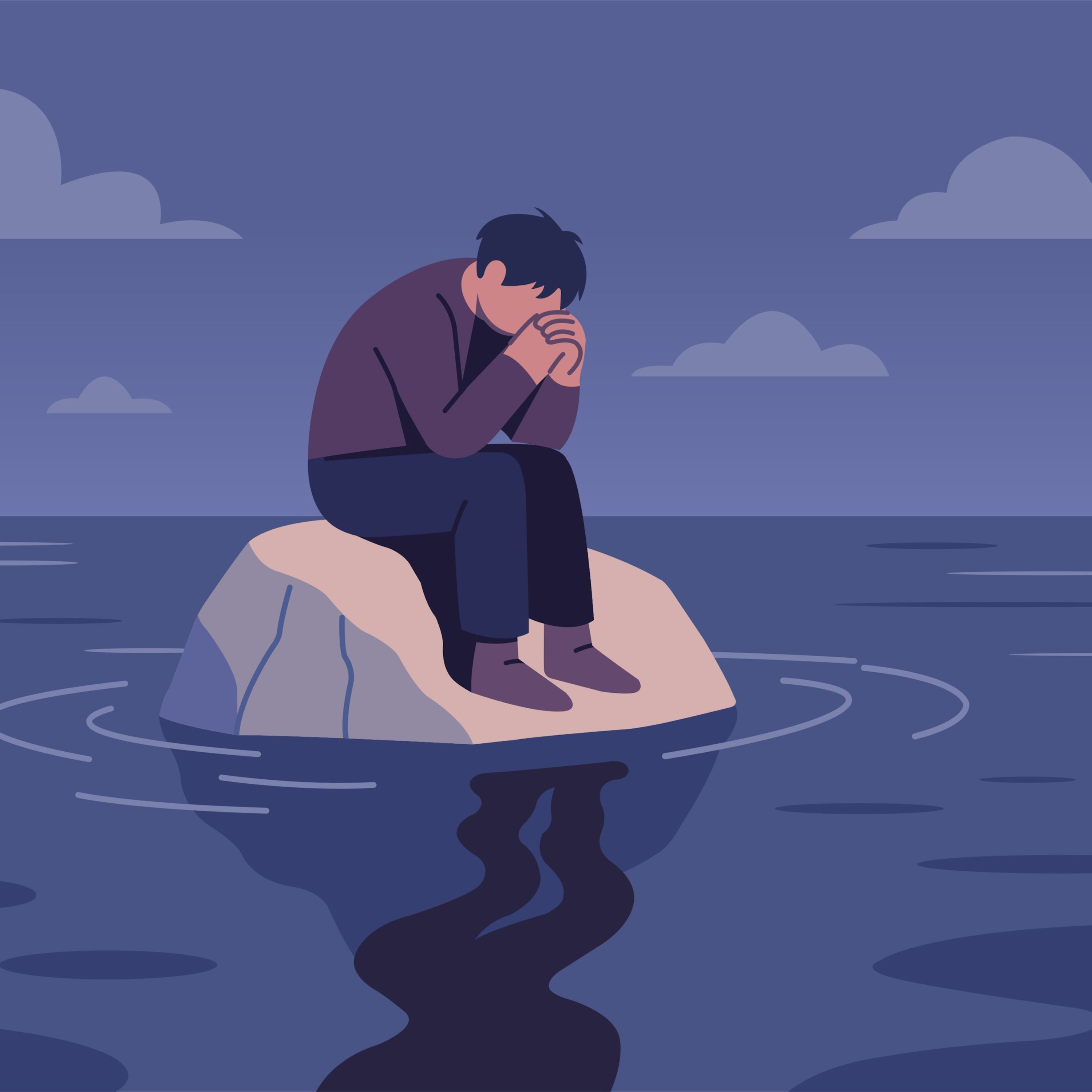Hidden Brain

Why do I feel stuck? How can I become more creative? What can I do to improve my relationships? If you’ve ever asked yourself these questions, you’re not alone. On Hidden Brain, we help you understand your own mind — and the minds of the people around you. (We're routinely rated the #1 science podcast in the United States.) Hosted by veteran science journalist Shankar Vedantam.
Website : https://www.siriusxm.com
IPFS Feed : https://ipfspodcasting.com/RSS/254/HiddenBrain.xml
Last Episode : September 15, 2025 7:00pm
Last Scanned : 4.3 hours ago

Episodes
Episodes currently hosted on IPFS.
 It's Not My Fault!
It's Not My Fault!Confirmed 4
It's not easy for most of us to receive negative feedback. Even when the person delivering that feedback is constructive and reasonable, we often feel the urge to defend ourselves. This week, we look at the psychology of defensiveness with neuroscientist Emily Falk. We'll explore what causes so many of us to resist constructive criticism, and how we can get better at giving and receiving such feedback. Then, in the latest installment of our ongoing series "Your Questions Answered," psychologist Ciara Greene returns to the show to answer your questions about memory and forgetfulness.If you have follow-up questions or thoughts for Emily Falk after listening to today’s conversation, and you’d be willing to share with the Hidden Brain audience, please record a voice memo on your phone and email it to us at [email protected]. Use the subject line “mental barriers.” Thanks! Our next stops on the Hidden Brain tour are coming up! Join us in Baltimore on October 11, Washington, D.C. on October 12, or Los Angeles on November 22. And stay tuned for more cities to be added for 2026. For more info and tickets, go to https://hiddenbrain.org/tour. Hosted by Simplecast, an AdsWizz company. See pcm.adswizz.com for information about our collection and use of personal data for advertising.
Expires in 44 hours
Published Monday
 Winning the Battle Against Yourself
Winning the Battle Against YourselfMany of us have been raised to believe that if we want to get something done, we just need to set our minds to it. Where there's a will, there's a way, right? Yet somehow we end up polishing off that pint of ice cream in the freezer, or spending more than our budget allows. It's almost as if we're not the ones in charge. This week, we talk with psychologist and neuroscientist Emily Falk about why our minds often conspire against our best interests, and how we can regain control. Do you have follow-up questions or thoughts for Emily Falk after listening to today’s conversation? If you’d be willing to share with the Hidden Brain audience, please record a voice memo on your phone and email it to us at [email protected]. Use the subject line “mental barriers.” Thanks!And if you love Hidden Brain, please consider joining our podcast subscription, Hidden Brain+. We're currently offering an extended 30-day free trial for all listeners who subscribe on Apple Podcasts during the month of September. To sign up, click the "Subscribe" or "Try Free" button in Apple Podcasts, or go to apple.co/hiddenbrain. Your subscription helps to fund the research, writing, and sound design that go into every episode of the show. We appreciate your support! Episode illustration by Fast Ink on Unsplash Hosted by Simplecast, an AdsWizz company. See pcm.adswizz.com for information about our collection and use of personal data for advertising.
Published 09/08
 Escaping Perfectionism
Escaping PerfectionismPerfectionism is everyone’s favorite flaw. It’s easy to assume that our push to be perfect is what leads to academic, athletic, and professional success. But how do we distinguish between high standards and unrealistic expectations? This week, we bring you a favorite conversation with psychologist Thomas Curran. He says perfectionism has a dark side, and that there are much healthier ways to strive for excellence. Then, we bring you the latest edition of our segment "Your Questions Answered." Sociologist Allison Pugh returns to the show to respond to listener questions about connective labor — the work of seeing another person, and having that person feel seen.The Hidden Brain tour continues this fall! Join us in Baltimore on October 11, Washington, D.C. on October 12, or Los Angeles on November 22. More info and tickets at hiddenbrain.org/tour.Episode image by Dadi Prayoga for Unsplash.com. Hosted by Simplecast, an AdsWizz company. See pcm.adswizz.com for information about our collection and use of personal data for advertising.
Published 09/01
 The Trauma Script
The Trauma ScriptWhen tragedy strikes, it’s natural to be devastated. But psychologist George Bonanno finds that many of us recover from life’s blows more quickly than we might expect. This week, we talk with Bonanno about his research and why it has changed how many scientists think about trauma and resilience.Do you have follow-up questions or comments after listening to this episode? If you’d be willing to share your thoughts with the Hidden Brain audience, please record a voice memo on your phone and email it to us at [email protected]. Use the subject line “trauma.” Thanks! Episode illustration by Ahmed Hossam on Unsplash Hosted by Simplecast, an AdsWizz company. See pcm.adswizz.com for information about our collection and use of personal data for advertising.
Published 08/25
 Radical Kindness
Radical KindnessWhy do some people risk their own lives to help another person, or give away their fortunes for the benefit of strangers? This week, we talk with psychologist and neuroscientist Abigail Marsh, who studies the science of altruism. We'll explore what's known about the brains of people who perform acts of remarkable selflessness, and how the rest of us can learn to be more like them. Do you have follow-up questions, comments, or stories about altruism and generosity after listening to this episode? If you'd be comfortable sharing with the Hidden Brain audience, please record a voice memo on your phone and email it to us at [email protected]. Use the subject line “generosity.” And if you liked today's conversation, please check out our sister podcast, "My Unsung Hero." You can find the show on this podcast platform, or by visiting our website: https://hiddenbrain.org/myunsunghero/The Hidden Brain tour heads to Toronto on Wednesday, August 6! Join Shankar there or at one of our upcoming stops in Baltimore, Washington, D.C., or Los Angeles. More info and tickets here: https://hiddenbrain.org/tour/ Hosted by Simplecast, an AdsWizz company. See pcm.adswizz.com for information about our collection and use of personal data for advertising.
Published 08/04
 You 2.0: Change Your Story, Change Your Life
You 2.0: Change Your Story, Change Your LifeWe all tell stories about ourselves, often without realizing we’re doing so. How we frame those stories can profoundly shape our lives. In our latest You 2.0 episode, we bring you a favorite conversation with psychologist Jonathan Adler. He shares how to tell our stories in ways that enhance our wellbeing. Then, Max Bazerman answers your questions about the science of negotiation.Do you have follow-up questions or ideas that you’d like to share after listening to our conversation with Jonathan Adler? How do you tell the story of your life, and how does that shape the way you see yourself? If you’re comfortable sharing your thoughts and questions with the Hidden Brain audience, please record a voice memo on your phone and email it to us at [email protected]. Use the subject line “personal stories.” Hidden Brain's "Perceptions" tour is continuing this fall! Join Shankar at an upcoming stop; more info and tickets here: https://hiddenbrain.org/tour/Episode Illustration by Art Attack on Unsplash Hosted by Simplecast, an AdsWizz company. See pcm.adswizz.com for information about our collection and use of personal data for advertising.
Published 07/28
 You 2.0: The Wisdom of Stoicism
You 2.0: The Wisdom of StoicismWhat does it mean to be stoic? Many of us assume it means you have a stiff upper lip, or that you suppress your emotions. That's what Massimo Pigliucci thought — until he started to peruse a book called Meditations. It was written nearly two thousand years ago by the Roman Emperor Marcus Aurelius. But Massimo, now a philosopher, says Meditations, and Stoic philosophy more broadly, offer wisdom that continues to speak to our lives. This week, we explore Stoic ideas and what they tell us about a life well lived. Do you have follow-up questions and ideas about stoicism after listening to this episode? If you’d be comfortable sharing your comments and questions with the Hidden Brain audience, please record a voice memo on your phone and email it to us at [email protected]. Use the subject line “stoicism.” Photo by Kenny Eliason on Unsplash Hosted by Simplecast, an AdsWizz company. See pcm.adswizz.com for information about our collection and use of personal data for advertising.
Published 07/21
 You 2.0: The Passion Pill
You 2.0: The Passion PillYou’ve probably heard the saying, “Do what you love, and you’ll never work a day in your life.” The idea is that pursuing your passion will feel invigorating — almost magical. But passions can easily wane over time. This week, behavioral scientist Jon Jachimowicz looks at how to keep our passions alive, and how to channel old passions into new pursuits.Do you have follow-up questions for Jon Jachimowicz, or ideas that you'd like to share after listening to this episode? If you'd be willing to share them with the Hidden Brain audience, please record a voice memo on your phone and email it to us at [email protected]. Use the subject line "passion."And a reminder that our live tour is underway! Shankar is traveling across the U.S. and Canada to share some of the key ideas he's learned in the first decade of the show. To see if we're coming to a city near you, please visit hiddenbrain.org/tour.
Published 07/07
 You 2.0: What Is Your Life For?
You 2.0: What Is Your Life For?What should you do with your life? There's no one-size-fits-all answer to that question. But there are scientifically-tested methods that can help you to feel more in harmony with yourself and the world. This week, and in a companion conversation for Hidden Brain+, researcher Victor Strecher explores the science of creating a life full of meaning. It's the kickoff to our annual You 2.0 series, which this year will focus on purpose and passion. If you’ve reached the midpoint of the year and you’re feeling adrift, alone, or burned out, this series is for you. Do you have follow-up questions for Victor Strecher, or ideas that you'd like to share after listening to this episode? If you'd be willing to share them with the Hidden Brain audience, please record a voice memo on your phone and email it to us at [email protected]. Use the subject line "purpose."And a reminder that our live tour is underway! Shankar is traveling across the U.S. and Canada to share some of the key ideas he's learned in the first decade of the show. To see if we're coming to a city near you, please visit hiddenbrain.org/tour.
Published 06/30
 Win Hearts, Then Minds + Your Questions Answered on Identity and "Covering"
Win Hearts, Then Minds + Your Questions Answered on Identity and "Covering"There’s a saying that’s attributed to the Dalai Lama: in the practice of tolerance, one’s enemy is the best teacher. It’s a nice idea. But when people don’t share our values, it’s hard for us to tolerate theirs. This week, we bring you a favorite episode with sociologist Robb Willer. We discuss the common mistakes we make in trying to persuade others of our point of view — and how to break out of our echo chambers. Then, Kenji Yoshino answers your questions about how we hide our true selves.In this week’s show, you’ll learn:*What’s happening in our minds when we’re trying to win an argument.*Techniques for how to take another person’s perspective — and how to become more effective in persuading them of your perspective.*The most successful protest tactics in winning allies.*Why we might shift from trying to change someone’s mind to trying to change their behavior.If you love Hidden Brain, come see Shankar live in a city near you this summer! For more info and tickets to our “Perceptions” tour, visit https://hiddenbrain.org/tour/
Published 06/23
 Ouch! That Feels Great
Ouch! That Feels GreatWe generally think of pain as something to be avoided. But psychologist Paul Bloom says that as much as we're wired to avoid suffering, we also seek it out. This week, we begin a two-part mini series about the curious pleasure we take in certain forms of pain.Hidden Brain is about to go on tour! Join Shankar in a city near you as he shares key insights from the first decade of the show. For more info and tickets, go to https://hiddenbrain.org/tour/.
Published 06/09
 The Price of Revenge
The Price of RevengeRevenge often feels sweet, but what price do we pay for seeking it out? Researcher James Kimmel, Jr. proposes a radical theory: our desire for vengeance operates like an addiction in the brain. This week, how “revenge addiction” plays out in our everyday lives — and on a global scale. Hidden Brain is about to go on tour! Join us as Shankar shares seven key insights he's learned from the show over the past decade. To see if we're coming to your city, and to purchase tickets, go to hiddenbrain.org/tour.
Published 06/02